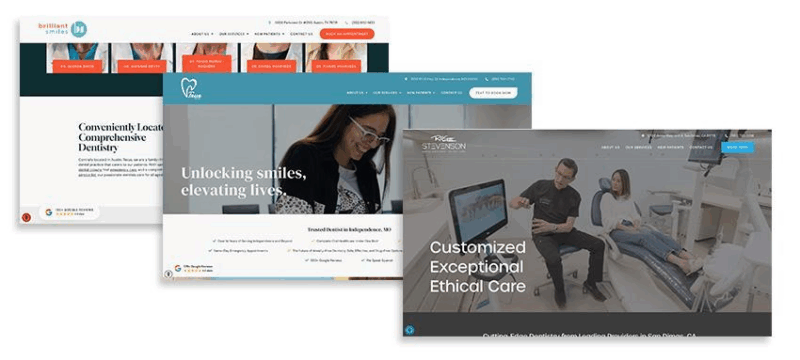
Email marketing may still be one of the most effective undertakings in customer engagement and conversion efforts, but long gone are the days when an entire list could blissfully be emailed. Today’s consumers not only desire but also expect targeted emails based on their desires and demands. That’s where AI-driven personalization for email marketing comes in. Where personalization used to depend on segmentation and educated guessing, AI personalization means that through machine learning, predictive analysis, and real-time assessment of everything under the sun, AI personalizes the email experience for the individual user as opposed to the collective or segmented group.
This increases engagement and conversion rates and provides a better overall experience for the customer. Where email marketing was stagnant for companies, AI personalization of email lists allows companies to graduate from those stagnant lists to a form of communication that becomes even more useful based upon findings and increased relevance in an effort to better open rate, click rate, and ultimately, revenue.
Understanding AI-Powered Email Personalization
AI email personalization isn’t simply putting someone’s name in a subject line. It means AI functions and recommends content based on specific users’ actions, needs, and desires. Email warmup ensures that personalized emails reach the inbox rather than being flagged as spam, allowing AI-driven content to have maximum impact. AI capabilities analyze customer data from historical purchases and viewing patterns to email engagement and real-time behavior and create an omnichannel experience that knows what works. For example, an AI-crafted email blast from an e-commerce site will show someone products they previously bought or abandoned in their cart.
An AI travel agency can suggest certain vacations based on what a user perused or bought in the past. Such personalized, triggered email blasts have much higher open and conversion rates because they essentially provide the person exactly what they want. Moreover, the capabilities of AI are more fluid; for example, an email can change based on customer interaction. If someone clicks on a product today and doesn’t click the link tomorrow, the next day’s email will be of the same product but on sale or recommending different products instead. That level of hyper-personalization makes even the emails more relevant and compelling.
How AI Analyzes Customer Data for Better Personalization
This is what happens with AI email personalization in real time. Where previously, a company would send out an email blast to its specific targeted audience, that audience was based on AI’s more vague, more detailed research from the overall acquisition process and engagement, which happens in real-time. With research from open and non-open rates, click and no-click rates, sales and abandoned carts, and extensive collections of filled carts and wish lists or desired wish lists, AI understands the connections over time due to how people interact. Thus, companies can send incredibly appropriate email blasts for hyper-specific needs.

For example, if someone expresses more interest in the digital marketing course, AI will ensure that everyone receives corresponding emails about future workshops, examples, and courses related to that topic. Yet another massive advantage artificial intelligence possesses is predictive analytics, allowing businesses to understand what customers will do before they do it.
For instance, if artificial intelligence recognizes that a customer consistently purchases face cream every other month, an email is automatically sent to that customer on the cusp of the purchase window, ensuring a sale. This type of marketing ensures that businesses are never behind the eight ball in terms of customer satisfaction when ease and enjoyment of the email experience are effortless.
AI-Powered Subject Lines That Boost Open Rates
Ultimately, it’s the subject line that’s convincing or not. A subscriber never opens an email, and no matter how proportioned the actual email is, it’s never opened. Thus, the marketing email campaign is a failure. Thus, with AI, there’s such subject line optimization due to the ability to parse through past emails sent, A/B testing, and sentiment analysis. AI collects all this data to see which words work better for particular audiences. Let’s say, for example, one subject line underwent a bunch of A/B testing with different words, different pitches, and different arrangements, and AI can compile how many times the one with the highest open rate was noted.
AI will learn. If more people prefer responding to a question than a statement, AI will remember and suggest such changes in the future. In addition, AI creates the subject line for each segmented audience. The frequent purchaser receives the subject line “Your Exclusive VIP Offer is Waiting,” while the fresh face in the database receives “Welcome! Here’s 10% Off Your First Purchase.” These little nuances make for a more customized feel for each email and a greater chance it will be opened and interacted with.
Personalizing Product Recommendations in Emails
One of the most powerful forms of AI-driven email personalization comes in the form of product recommendations. There’s no reason for every subscriber to receive the same marketing email. AI ensures that every person gets an email about products/services related to their specific interest. For example, a clothing retail eCommerce site can utilize an AI-driven email blast to see what someone bought last week and what they viewed to give accurate outfit recommendations for their style. If someone keeps buying yoga pants, the AI will ensure that this subscriber gets the email about the new activewear line and yoga mats, while the person who never visited those categories will not.
Such recommendations are dynamic. If a customer purchases a featured item from the emailed newsletter or even if they simply click on it but don’t purchase it, for example, AI can program a subsequent email with a personalized discount or a notification that the item is low in stock. This level of personalized interaction improves customer experience and dramatically shifts conversion rates.
Timing Emails for Maximum Impact with AI Optimization
It’s not just personalized content but also time-of-delivery precision. Email services equipped with AI understand sender behaviors to determine when an email should be sent. Rather than blasting it out all at once to everyone and hoping for the best, AI relies on historical data to determine when each individual email gets sent. If one particular subscriber consistently opens all his emails at 8 AM on Tuesdays and 7 PM on Saturdays, AI recognizes this and sends the email at those times so it lands in his inbox at those times.
AI can also change send times in the moment. If a person opened a campaign at 11 PM last night, for example, AI would now send that person’s campaign later in the day at a suggested prime time determined by past engagement data to encourage a higher likelihood of engagement. More opens mean more clicks and, ultimately, more conversions of any given campaign, rendering it that much more effective and precise.
Automating Email Sequences for Higher Engagement
Where AI personalizes one-off emails to a person, it also helps create automated email funnels to guide subscribers down a more purposeful path. AI automation allows for emails to be sent at the perfect time, for the perfect reason, based on projected activity. For example, an entire lead nurturing funnel can be done by AI from a funnel that provides niche content based on how people respond to each following email.

If someone opens an email that has a link to an informational blog post but does not engage further, AI might recommend that the next email contains a free download or an invitation to a webinar. If they engage with that email, the third email might contain a link to a tailored product demonstration. These intelligent, automated ripple effects guarantee that any and every email sent is important within the sales funnel, increasing engagement and likelihood of conversion.
Conclusion: AI-Powered Email Personalization is the Future of Marketing
The next big thing in email marketing is AI-driven email personalization. With machine learning, predictive analytics, and automated personalization, companies will send audience-centric, engaging, and conversion-driven emails relevant to the brief attention span of the audience. For instance, AI knows how many characters should be in a subject line, where to create custom product recommendations, which automated email journeys are best for which audiences, and even when to send an email, to begin with.
This application of AI not only makes email marketing a more tactical prospect for marketers to succeed but also a more customer-centric experience. Therefore, companies that utilize AI-driven email personalization will see higher open rates, more engagement, and increased sales. Thus, as this technology becomes more and more widespread, businesses employing these ingenious email personalization techniques will remain competitive, enhance their relationship with their target audiences, and generate real results in an ever-growing digital landscape.


